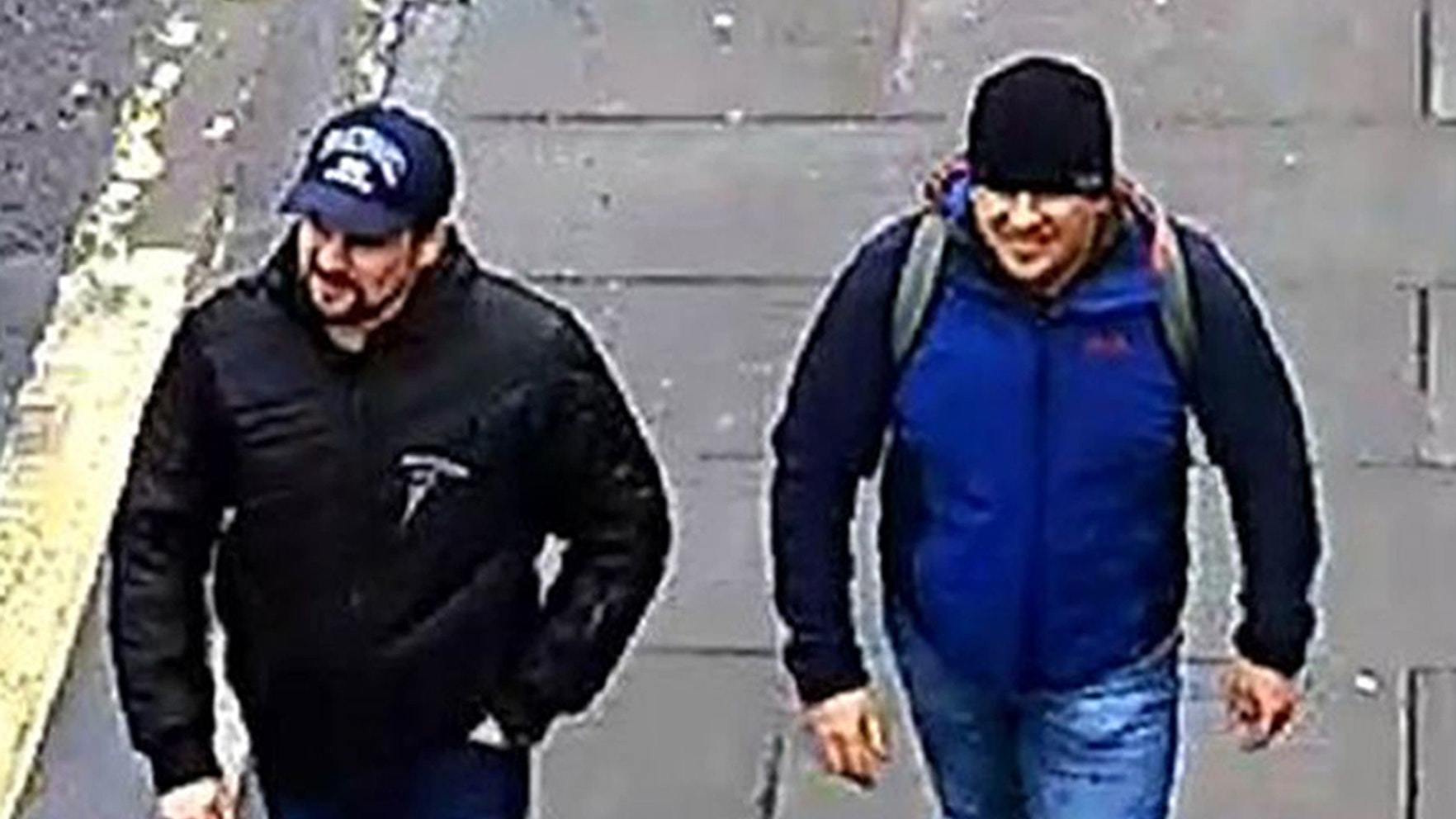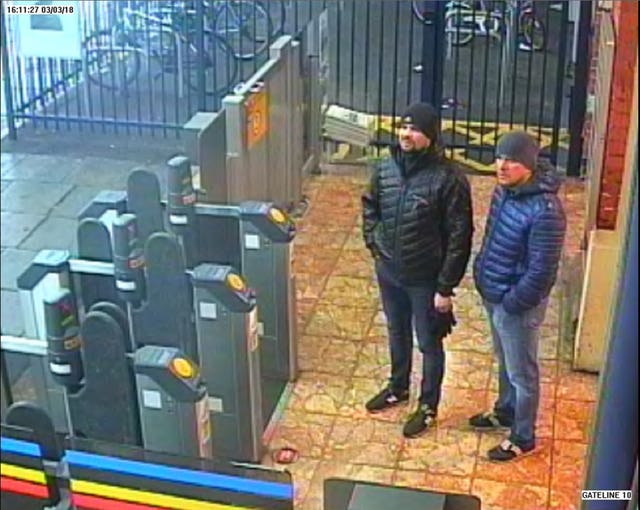
BRITAIN has accused Russia of responding with “obfuscation and lies” after the prime suspects in the Salisbury nerve agent attack claimed they visited the UK as tourists.
Alexander Petrov and Ruslan Boshirov told Russian state-funded news channel RT they travelled to the “wonderful” city in Wiltshire after recommendations from friends.
The pair claimed they have been left fearing for their lives after Britain pointed to their involvement and said they were officers in Russian military intelligence service the GRU.
In the interview, with RT editor-in-chief Margarita Simonyan, they said they worked in the fitness industry.
In a translation from Russian, the broadcaster quoted Petrov as saying they arrived in London on March 2 and attempted to visit Salisbury on March 3 but were thwarted by snow.
They returned the following day when it was warmer to see the cathedral.
He said: “Of course, we went there to see Stonehenge, Old Sarum, but we couldn’t do it because there was muddy slush everywhere. The town was covered by this slush. We got wet, took the nearest train and came back (to London).”
In the men’s first interview since they were named publicly they denied carrying women’s perfume, after police discovered a counterfeit bottle that contained a “significant amount” of Novichok.
Boshirov acknowledged they may have been near Mr Skripal’s house but they did not know where it was.
They also asked for an apology from the UK authorities, adding: “We just want this to be over.”
UK authorities believe the pair smeared the highly toxic chemical Novichok on a door handle at the Wiltshire home of former GRU officer Sergei Skripal, leaving Mr Skripal and his daughter Yulia critically ill.
Tests on the east London hotel room where the suspects had stayed showed contamination of Novichok.
A Government spokesman said: “The Government is clear these men are officers of the Russian military intelligence service – the GRU – who used a devastatingly toxic, illegal chemical weapon on the streets of our country.
“We have repeatedly asked Russia to account for what happened in Salisbury in March.
“Today – just as we have seen throughout – they have responded with obfuscation and lies.”
John Glen, the Conservative MP for Salisbury and South Wiltshire, also dismissed the statements from Petrov and Boshirov as “not credible”.
President Vladimir Putin said the men had been discounted as members of his security network.
In an address to the Easter Economic Forum in Vladivostok, he said: “Of course, we looked who these people are. We know who they are, we have found them already.
“There is nothing special and nothing criminal about it, I’m telling you.”
Questioned on whether the pair were civilians, Mr Putin replied: “Of course they are civilians.”
Boshirov said his life had been turned “upside down”, according to RT.
He said: “We’re afraid of going out, we fear for ourselves, our lives and lives of our loved ones.”
Detectives believe it is likely the two suspects, thought to be aged around 40, travelled under aliases and that Petrov and Boshirov are not their real names.
Officers formally linked the attack on the Skripals to events in nearby Amesbury where Dawn Sturgess, 44, and her partner Charlie Rowley, 45, were exposed to the same nerve agent.
Ms Sturgess died in hospital in July, just over a week after the pair fell ill.
A police officer who visited the home of the Skripals shortly after the attack, Nick Bailey, was also left critically ill from exposure to the substance.

Enjoy the convenience of having The Sunday Post delivered as a digital ePaper straight to your smartphone, tablet or computer.
Subscribe for only £5.49 a month and enjoy all the benefits of the printed paper as a digital replica.
Subscribe